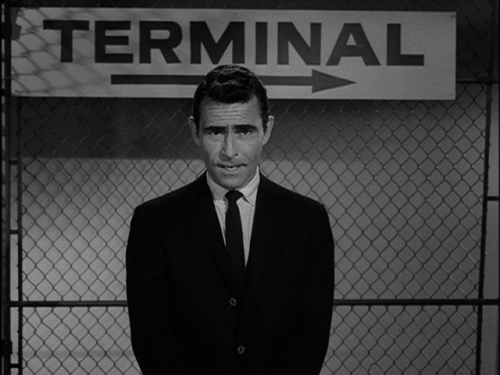It looks like you're using an Ad Blocker.
Please white-list or disable AboveTopSecret.com in your ad-blocking tool.
Thank you.
Some features of ATS will be disabled while you continue to use an ad-blocker.
22
share:
from Dangerous Minds.net
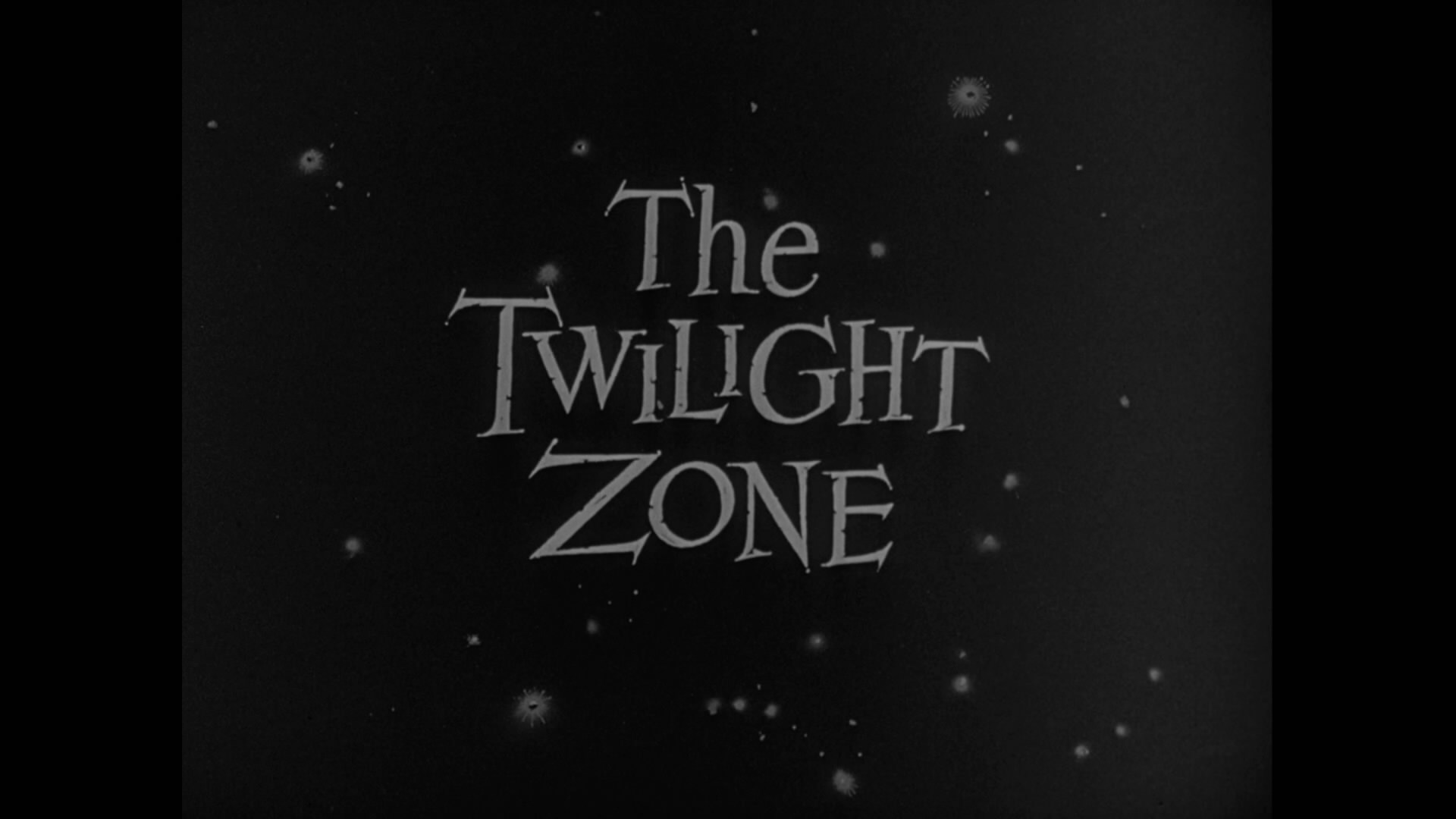
In the interview with Mike Wallace, Serling discusses being shut down by sponsors for trying to address the Emmett Till case, and receiving many complaints from a “lunatic fringe of letter writers” about an episode of Lassie wherein the iconic collie has puppies. Some wacko viewers felt that the episode promoted sexuality. The complaints lead the station to shy away from presenting the birth of puppies in the future according to Serling. He goes on to talk about the backlash caused by writers using the term “gas chamber” in a Playhouse 90 production of Judgment at Nuremberg (an early version of the 1961 film of the same name) by a sponsor who sold gas stoves. “This, I rebel against,” Serling forcefully declares.
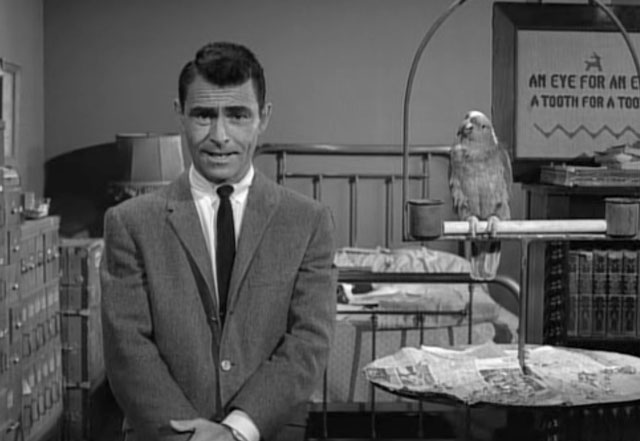
One of my all time favorite shows ..watching reruns all night as a kid and getting the CRAP scared out of me..Miss that feeling..lol
Very interesting to know how the show was brought about. Puppies.

By 1959, Rod Serling had had it with the dumbing down of American television by what he saw as overly sensitive TV sponsors who forced writers to edit scripts with impunity during the boob tube’s early years. Most sponsors wanted zero controversy and nothing to appear in a script that might incline viewers to think “improperly” about a particular brand of cake batter, or car or whatever else was being promoted on a given show. In the fiery discussion below, which aired (according to IMDB) on September 22, 1959, we find Serling on The Mike Wallace Interview talking about his early writing career and the heavy hand of corporate sponsorship that led to his creation of a soon-to-debut science fiction and fantasy television series called The Twilight Zone (the first episode would air a little over a week later on October 2, 1959). A passionate exchange about early TV’s potential, thoughts about what Wallace calls “the battle of the writer to be his own man” and copious on-air smoking ensues.
After spending a few years writing promotional testimonial letters for a Cincinnati television station and making $700 during his best year, Serling was bored out of his mind with the “dreamless occupation.” He set out with his wife for New York City in 1951 to try to make a name for himself as a freelance television scriptwriter. By 1959, Serling had done just that, winning three Emmys and distinguishing himself as being possibly the first television author in history to have a live TV drama (1955’s Patterns) aired twice due to rave reviews and audience demand.
In the interview with Mike Wallace, Serling discusses being shut down by sponsors for trying to address the Emmett Till case, and receiving many complaints from a “lunatic fringe of letter writers” about an episode of Lassie wherein the iconic collie has puppies. Some wacko viewers felt that the episode promoted sexuality. The complaints lead the station to shy away from presenting the birth of puppies in the future according to Serling. He goes on to talk about the backlash caused by writers using the term “gas chamber” in a Playhouse 90 production of Judgment at Nuremberg (an early version of the 1961 film of the same name) by a sponsor who sold gas stoves. “This, I rebel against,” Serling forcefully declares.

Despite some critics being worried that Serling’s insistence on writing for television (and the money that it provided) was holding him back from making important art (a contention that Wallace brings up on a few occasions), Serling comes across as being deadly serious about his belief in TV’s possibility for greatness. Serious enough, in fact, that he was in the process of trying to get out of a quarter million dollar (obviously big money at the time), three-year writing contract with Metro-Goldwyn-Mayer so that he could devote all of his time to The Twilight Zone where he claimed to have more direct control over the relationship with sponsors. Serling indicates he was only guaranteed 26 episodes of The Twilight Zone, and that he would stand to lose a lot of money if the show didn't carry on beyond that. Ultimately, it ran for five seasons and 156 episodes were made.
One of my all time favorite shows ..watching reruns all night as a kid and getting the CRAP scared out of me..Miss that feeling..lol
Very interesting to know how the show was brought about. Puppies.
edit on 2/28/2015 by DjembeJedi because: (no reason given)
edit on 2/28/2015 by DjembeJedi because: (no reason given)
Great read. I watched The Twilight Zone reruns religiously as a teenager. You can name a lot of actors and actresses who were on that show. To
imagine that it would have been different than what we got is insane. I can remember just some of the most rawest performances.....rarely any special
effects..... just really good acting and you never knew if it was gonna end badly or not.
We're showing our age. The Twilight Zone is classic, my kids didn't even recognize a reference to it a few weeks ago. The theme song alone is
memorable and makes a statement.
. I am watching it currently for the first time season 1 Episode 8. It is very good.
The later "Night Gallery" series produced by Serling scared the heck out of me as a kid. Shows like "Twilight Zone", "One Step Beyond" and
"Outer Limits" had some scary episodes, but most episodes never seemed all that scary to me, just really weird.
a reply to: DjembeJedi
A fine presentation-- and my thanks for airing this pioneer
from the Golden Age! A personal hero of mine for going
against the grain, and creating one of the top five shows
of the 50's and 60's. I still have a few prints of the biggies.
TZ has withstood the test of time... and maybe transformed
the idiot box temporarily into a viable enrichment medium.
Even at my tender age, it always made me think harder.
It was often personally to the paranormal what "Your Show of
Shows" was to comedy: and that's saying plenty. More bongo.
A fine presentation-- and my thanks for airing this pioneer
from the Golden Age! A personal hero of mine for going
against the grain, and creating one of the top five shows
of the 50's and 60's. I still have a few prints of the biggies.
TZ has withstood the test of time... and maybe transformed
the idiot box temporarily into a viable enrichment medium.
Even at my tender age, it always made me think harder.
It was often personally to the paranormal what "Your Show of
Shows" was to comedy: and that's saying plenty. More bongo.
Thanks as a fan. Also, didn't know that about the show. Later on the similar Outer Limits started airing. History from there!
Here are some great random shots from different episodes...
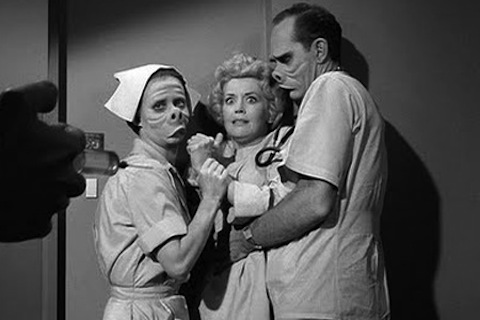
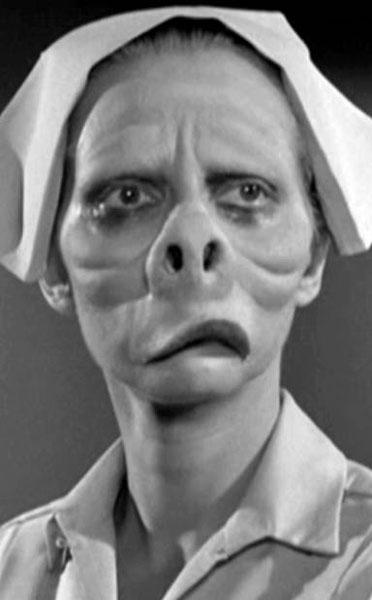
Feeling sick? "Eye of the Beholder" episode
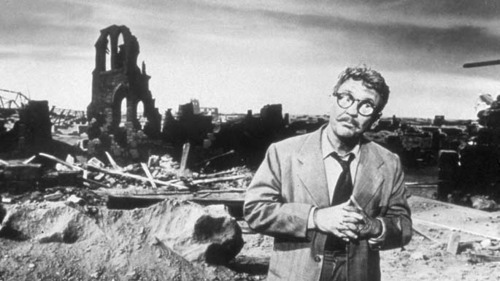
"Time Enough at Last"
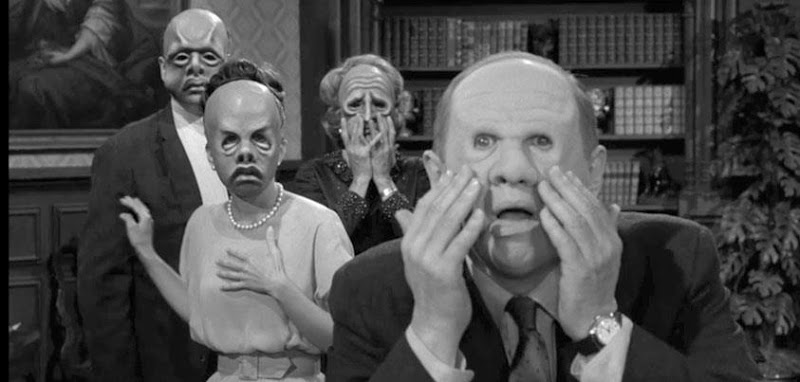
another creepy episode..."The Masks"
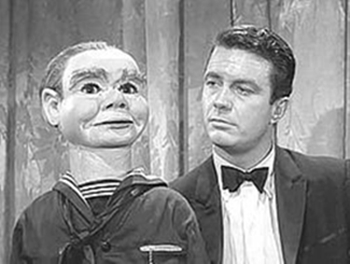
The CREEPIEST of all episodes.."The Dummy"
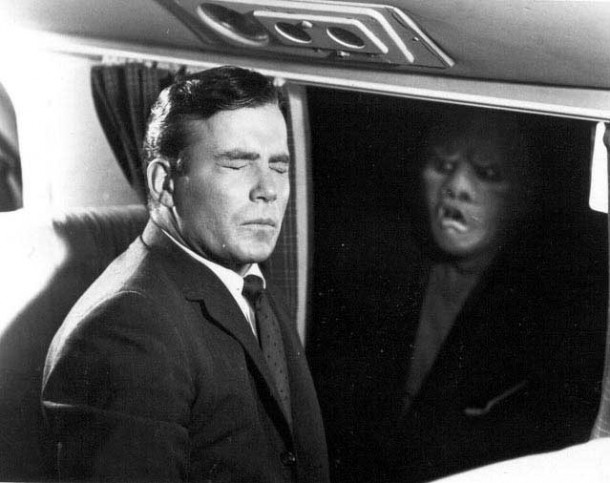
Hey who's that guy? " Nightmare at 20,000 Feet"
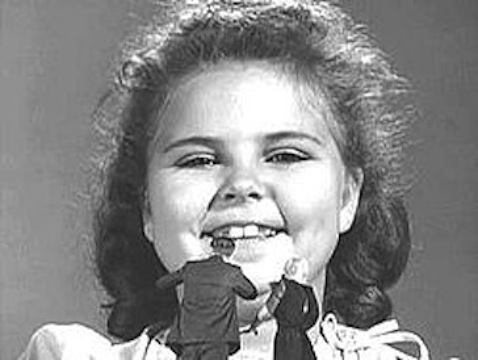
and the super strange "Stopover in a Quiet Town"


Feeling sick? "Eye of the Beholder" episode

"Time Enough at Last"

another creepy episode..."The Masks"

The CREEPIEST of all episodes.."The Dummy"

Hey who's that guy? " Nightmare at 20,000 Feet"

and the super strange "Stopover in a Quiet Town"
a reply to: DjembeJedi
Excellent read, thank you for posting this.
Twilight Zone will always have a place in my heart and on my dvd shelf. Nightmare at 20,000 feet is an all time classic. Shatners version is terrific for the time but John Lithgow steals it for me.
As a kid, I watched an episode (The Howling Man iirc) about a prisoner trapped in some sort of temple or church. Once released he transformed into the Devil. That one was nightmare fuel for a while.
Excellent read, thank you for posting this.
Twilight Zone will always have a place in my heart and on my dvd shelf. Nightmare at 20,000 feet is an all time classic. Shatners version is terrific for the time but John Lithgow steals it for me.
As a kid, I watched an episode (The Howling Man iirc) about a prisoner trapped in some sort of temple or church. Once released he transformed into the Devil. That one was nightmare fuel for a while.
a reply to: DjembeJedi
Really interesting article and interview Djembe, thanks for posting - don't know what Rod would make of the 'dumbing down' of television these days but I don't think he'd be too impressed -to my mind it's almost as if there's an attempt to engineer people into not being free thinking, informed citizens.
There's another great interview with Rod below and even if a person isn't into creative writing or collaborative research it's well worth a watch (as one Youtube poster comments it's 'insanely informative').
There's also this pretty awesome UFO documentary hosted and narrated by Rod which won a Golden Globe Award when it was released in 1974 so it's a great shame hardly anyone has ever heard of it.
Really interesting article and interview Djembe, thanks for posting - don't know what Rod would make of the 'dumbing down' of television these days but I don't think he'd be too impressed -to my mind it's almost as if there's an attempt to engineer people into not being free thinking, informed citizens.
There's another great interview with Rod below and even if a person isn't into creative writing or collaborative research it's well worth a watch (as one Youtube poster comments it's 'insanely informative').
There's also this pretty awesome UFO documentary hosted and narrated by Rod which won a Golden Globe Award when it was released in 1974 so it's a great shame hardly anyone has ever heard of it.
Lost/spoof episode of the Twilight Zone with Rod Serling and Jack Benny.
A great show, and a lot of the episodes had a great deal of social commentary undertones. I suck at titles, but some really stuck with me, like an
episode where a guy could suddenly read people's thoughts, and how that would play out, or the one with a bomb shelter, and all of the people turning
on each other to get in, etc. Very intelligent TV.
Absolutely one of the best shows ever.... rewatched this a couple of years ago, bought the DVD boxset.
Was so good watching them and there are some incredible episodes, so thought provoking.
I can't even imagine what they would have been like in the late 50's/early 60's.... a truly ground breaking show.
Was so good watching them and there are some incredible episodes, so thought provoking.
I can't even imagine what they would have been like in the late 50's/early 60's.... a truly ground breaking show.
new topics
-
Just spotted an unusual aircraft Melbourne Australia
Aliens and UFOs: 22 minutes ago -
The truth lets admit it
Aliens and UFOs: 5 hours ago -
Mass Shooting Towson, Maryland - 7 shot, 1 possibly dead
Social Issues and Civil Unrest: 8 hours ago
top topics
-
Trump formally clinches Electoral College victory
2024 Elections: 13 hours ago, 17 flags -
Was Biden's Mass clemency and pardons one last cash grab?
US Political Madness: 17 hours ago, 10 flags -
What's the buzz
General Chit Chat: 16 hours ago, 8 flags -
Mass Shooting Towson, Maryland - 7 shot, 1 possibly dead
Social Issues and Civil Unrest: 8 hours ago, 5 flags -
Elon Musk has Meeting with Nigel Farage at Mar-a-Lago
Regional Politics: 16 hours ago, 4 flags -
The truth lets admit it
Aliens and UFOs: 5 hours ago, 3 flags -
Just spotted an unusual aircraft Melbourne Australia
Aliens and UFOs: 22 minutes ago, 1 flags
active topics
-
The truth lets admit it
Aliens and UFOs • 11 • : CosmicFocus -
Elon Musk has Meeting with Nigel Farage at Mar-a-Lago
Regional Politics • 7 • : gortex -
Something better
Dissecting Disinformation • 44 • : chr0naut -
Just spotted an unusual aircraft Melbourne Australia
Aliens and UFOs • 0 • : Cavemannick -
And Here Come the Excuses!!
General Conspiracies • 202 • : andy06shake -
Mood Music Part VI
Music • 3738 • : BrucellaOrchitis -
Labour Plotting to Postpone May's Council Elections ?
Regional Politics • 9 • : Freeborn -
Russias War Against Religion in Ukraine
World War Three • 27 • : Freeborn -
Why isn't Psychiatry involved?
Social Issues and Civil Unrest • 23 • : BrucellaOrchitis -
-@TH3WH17ERABB17- -Q- ---TIME TO SHOW THE WORLD--- -Part- --44--
Dissecting Disinformation • 3748 • : AianawaQ1320
22

